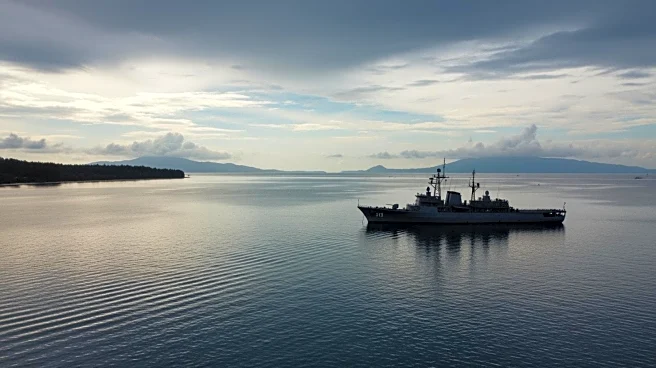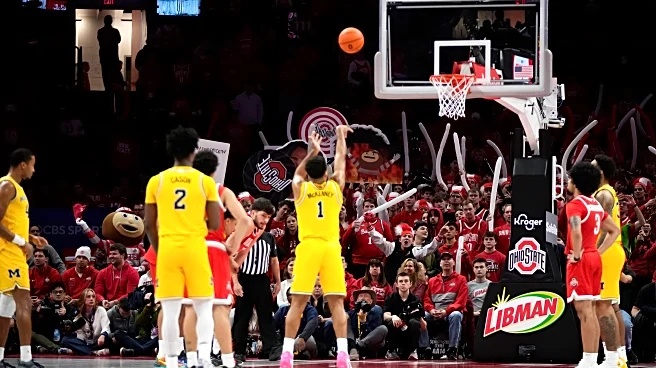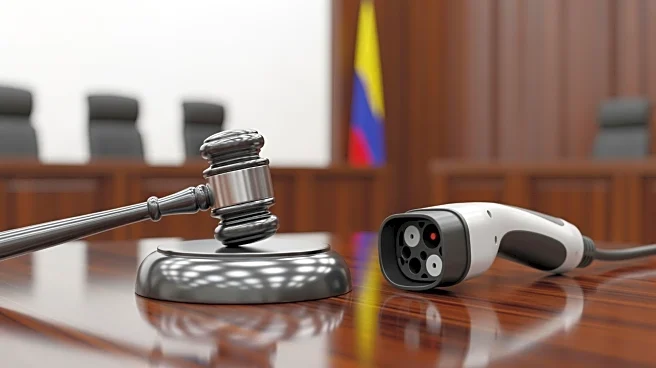What's Happening?
The United States is set to conduct military drills in Trinidad and Tobago, involving the US Marine Corps' 22nd Marine Expeditionary Unit. The drills are part of a mission to disrupt illicit drug trafficking in the Caribbean. Venezuelan President Nicolás
Maduro has criticized the drills, accusing the US of pursuing a criminal war and threatening regional peace. The US has amassed naval forces in the Caribbean, including the USS Gerald R. Ford aircraft carrier, raising concerns about potential conflict.
Why It's Important?
The US military presence in the Caribbean and the planned drills have heightened tensions with Venezuela, potentially impacting regional stability. The situation underscores the geopolitical dynamics in the region and the strategic interests of the US in combating drug trafficking. The drills may influence diplomatic relations between the US, Trinidad and Tobago, and Venezuela, with potential implications for regional security and cooperation.
What's Next?
The US and Venezuela may continue to engage in diplomatic efforts to address the tensions, with potential involvement from regional and international organizations. The situation could lead to increased military activity in the Caribbean, affecting trade and security in the region. The outcome of the drills may influence future US military strategies and regional alliances.
Beyond the Headlines
The situation raises questions about the ethical implications of military interventions and the balance between national security and regional peace. The role of military power in addressing non-traditional security threats, such as drug trafficking, may prompt discussions about alternative approaches to conflict resolution and international cooperation.
















